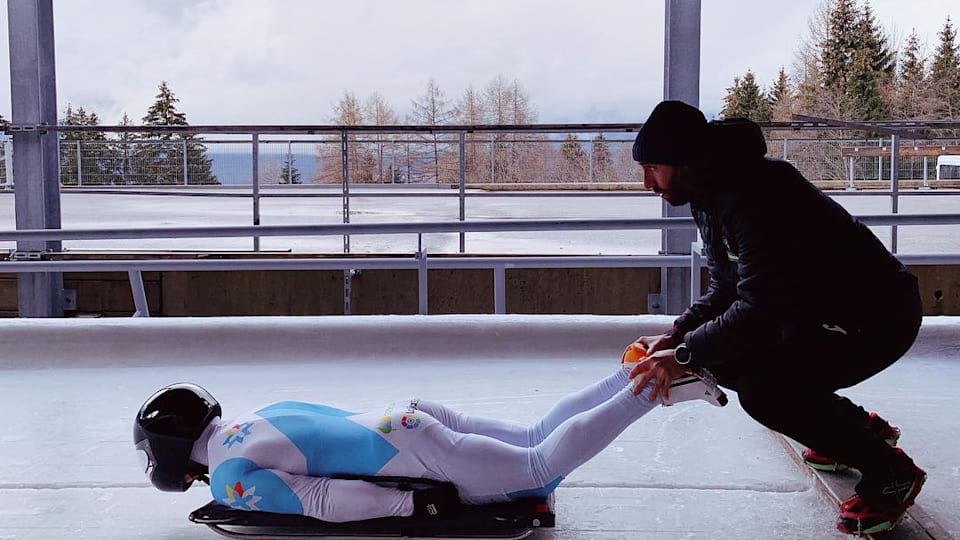Wanted: Spanish skeleton athletes to compete at Beijing 2022
Six young athletes have been selected to train in Austria, as there is no skeleton track in Spain.

"My goal is to be at the next Winter Olympics, but not alone."
Ander Mirambell is a pioneer of skeleton in Spain, a country where there's no tradition of the sport.
He has been to three Winter Olympics: Vancouver 2010, Sochi 2014 and PyeongChang 2018. Now 36, he is passing his knowledge to the next generation, who are learning the sport from scratch.
More than 100 people answered his call on social media, with six athletes making the final cut. Olympic Channel went along to watch their first attempts.
The first taste of the ice track
The six chosen athletes travelled to Igls, a town close to the Olympic city of Innsbruck.
They all hurtled down the track, head-first, at up to 100 km per hour. And all six agree on the first feeling: "An adrenaline rush."
"But also fear," adds 22-year-old Paula Raúl after going down the ice track for the first time.
"We're very, very close to the floor, head-first, and with an element that we cannot control. I control the sled, but the ice is the opposite," Oriol Roca, another newcomer pilot, points out.
"There is some indecision but, step by step, we are feeling the rhythm."
They all have the requirements to be a good skeleton champ: speed, leg strength, body control and balance.
The six of them have come from other disciplines, like athletics, cycling or judo.
"Judo is very body-oriented, sensitive... and that helps me to know where my body is at each moment. As it's a combat sport, I can accept the hits," says Marta Ferrer, who holds a black belt in her previous sport.
From Spain to Austria
Another complication in their bid to join the international elite is that there is no skeleton track in Spain.
But that doesn't mean that they don't train there.
"We try to work on the start, that is 30 percent. Of course we can't go down the track but we work mentally, with simulators and three thousand other things that we can invent to recreate the track in Spain," says Mirambell.
His brother Toni, the only Spanish International Bobsleigh and Skeleton Federation-certified coach, insists: "We supply those tools with a lot of creativity... and with the athletics track, which is very important."
Road to Beijing 2022
The Spanish Federation of Ice Sports launched this project with the eyes set on the next Winter Olympics: Beijing 2022.
"We are short of time but this is the first step of the way. We don't know if it's going to happen in 2022 or 2026 but we are excited," Ander Mirambell adds.
"I want to return to the sport everything it gave to me... and what better way than teaching the athletes who are coming?"
The #SkeletonChallenge continues. They will have another training camp in February in St. Moritz, Switzerland.
